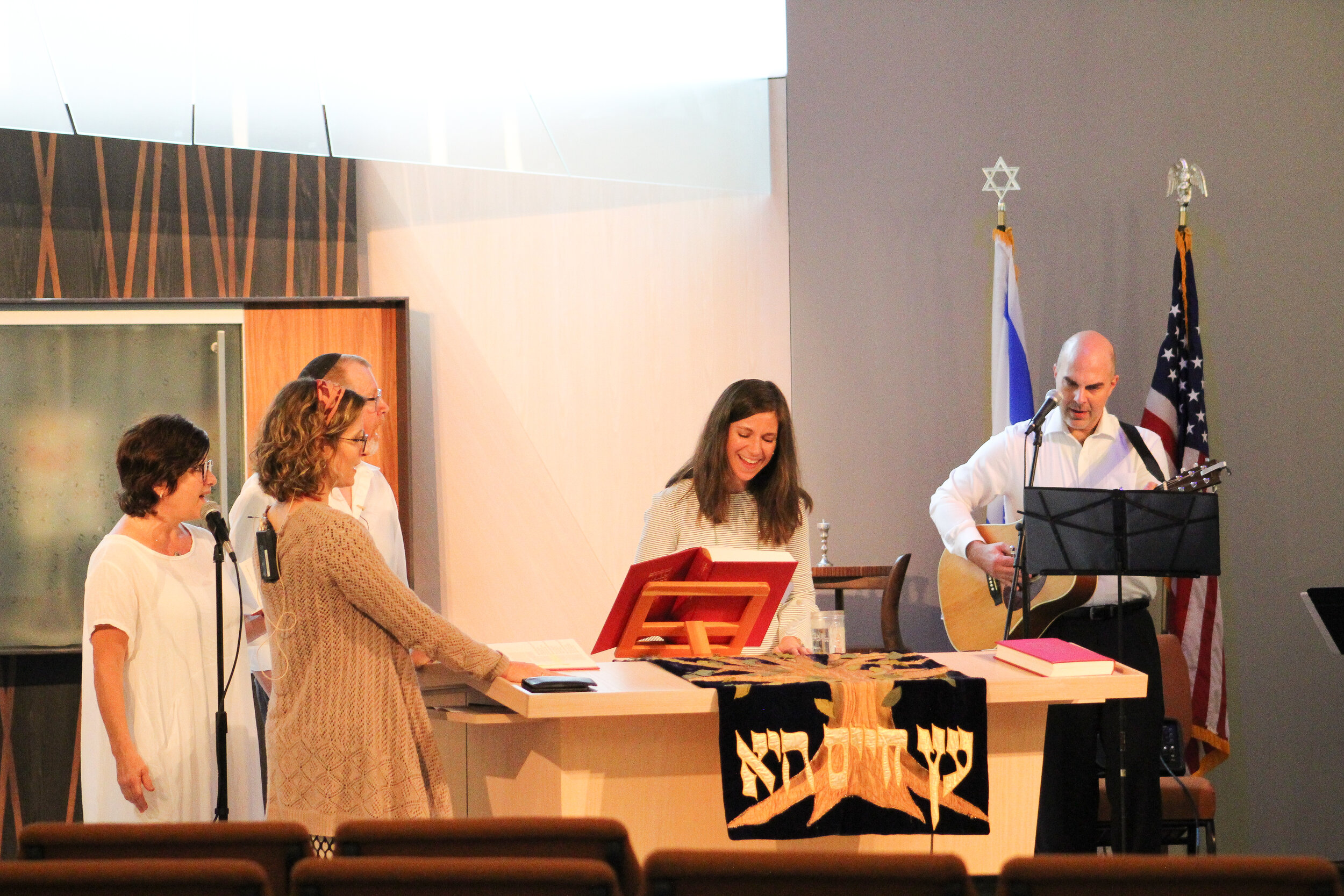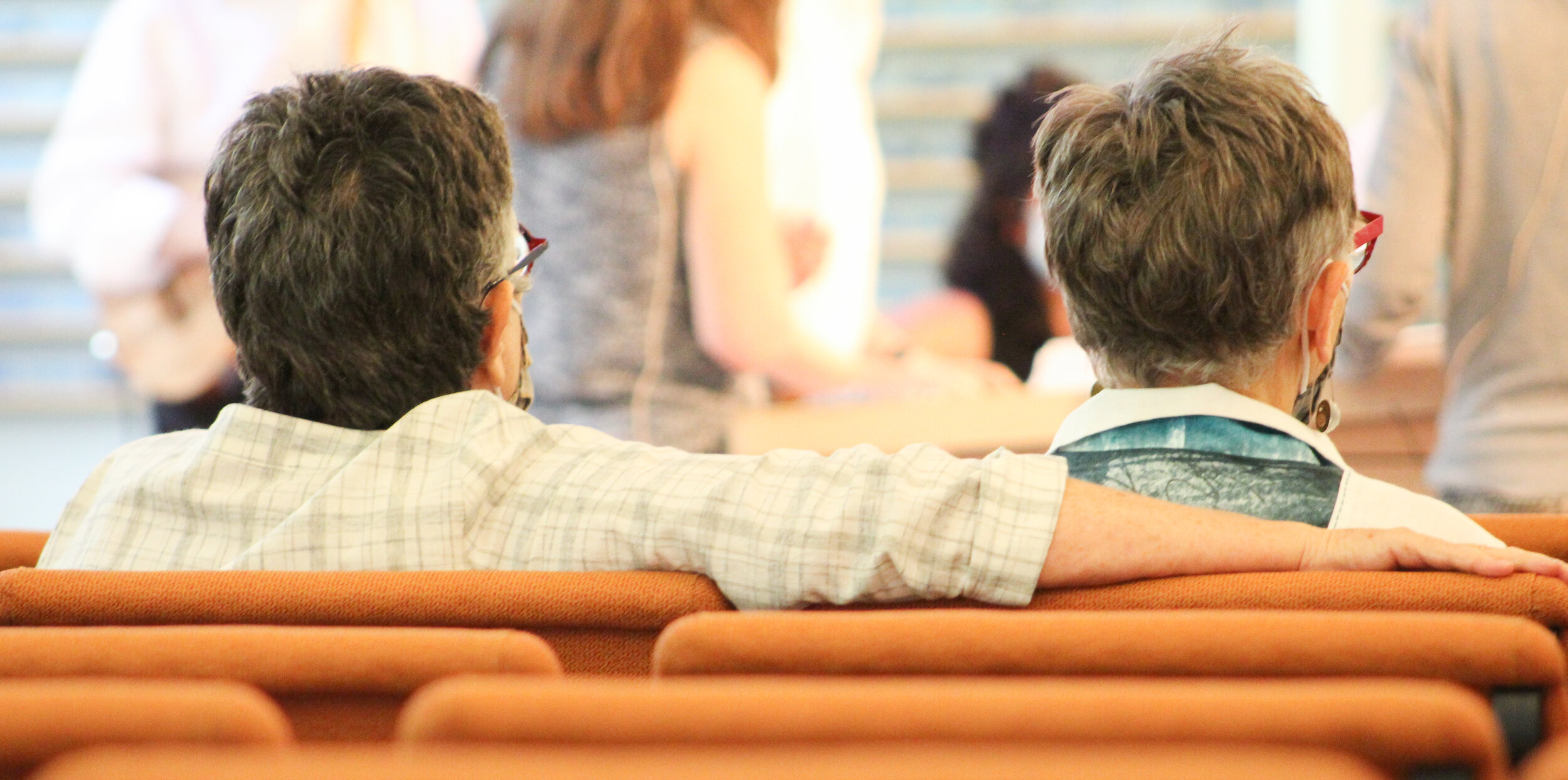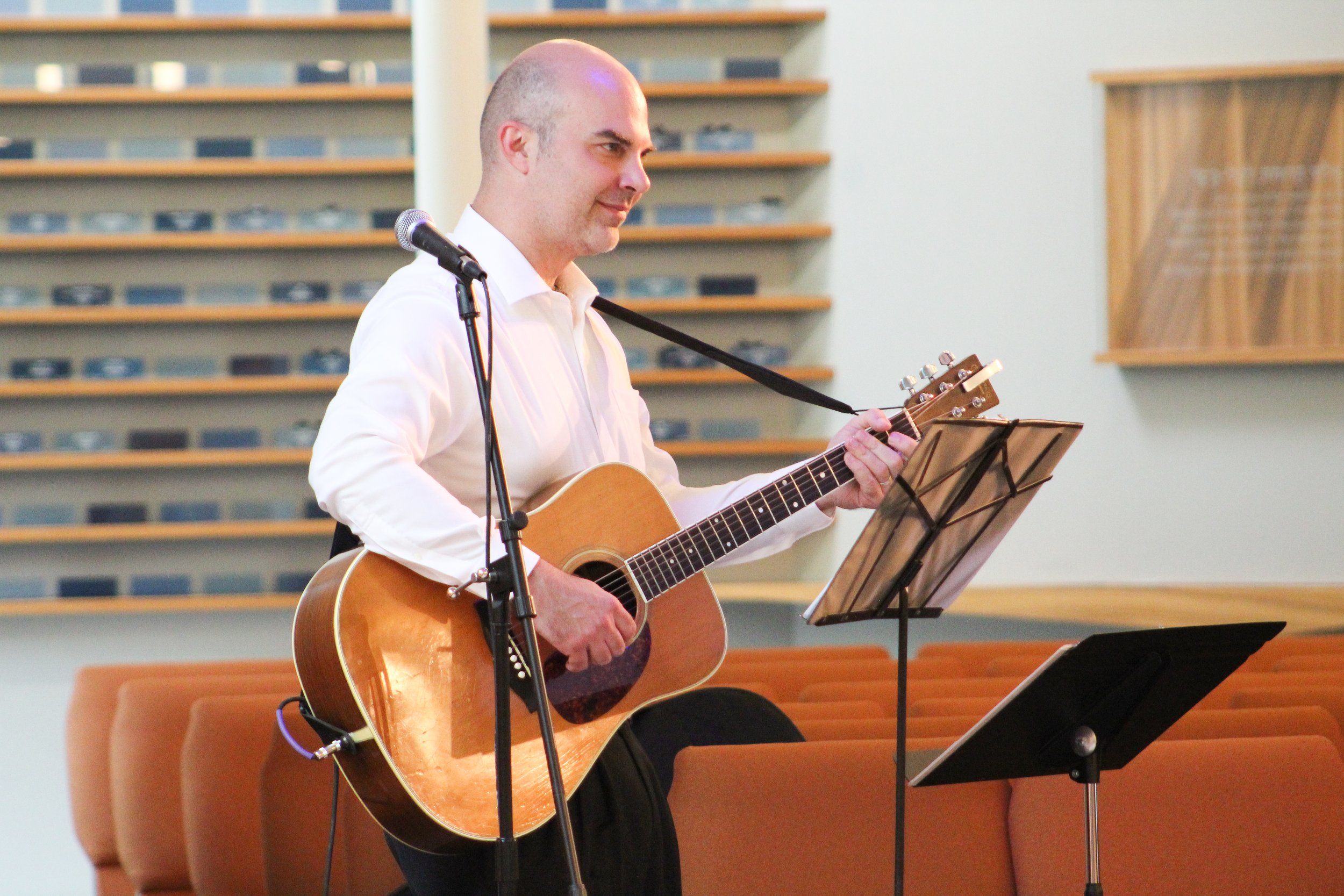
When we pray, we shift from doing to being.
Prayer
When we pray, we shift from doing to being. We step out of the endless parade of activities and to-do lists for just a little while so that we can regain the understanding that we are part of something much larger than ourselves. Prayer opens our hearts to ourselves and to each other by reconnecting us with what matters most.
-

Shabbat & Minyanim
We gather several times a week to pray and learn as a community. You are always welcome!
-

High Holidays
Peruse recordings and teachings from past High Holidays.
-

Our Music
Get a taste for our services.
Why Jewish Prayer?
I remember being at a synagogue where (like at many synagogues), the prayer felt rote and flat. Same songs, same words, every single week. Nothing new or surprising. But when we reached the prayer for the sick, people would walk up to the front of the room, one by one, to whisper the names of their loved ones to the rabbi, and the rest of the shul sat quietly and still. Those were the moments where anyone who walked in could tell you - something real is happening here. And I know it’s possible for prayer to grow more real for us, too.
In Jewish prayer - tefillah - we shift from doing to being. We step out of the endless parade of activities and to-do lists for just a little while so that we can regain the understanding that we are part of something much larger than ourselves. Ultimately, Jewish prayer is about helping us to open our hearts, helping us grow in self-compassion and in care for one another, by reconnecting us with what matters most.
The siddur/prayerbook, which has accumulated and been passed down to us over many generations, is one tool among many that helps us to connect. So often, the reality is that most of us can’t find the words to truly express what’s deep in our hearts, so the words in the siddur become a portal for us to begin to give expression to our own inner thoughts and feelings.
But it’s an imperfect tool. It’s in Hebrew, which for many of us is not our native tongue (and even if we are modern Hebrew speakers, the prayerbook Hebrew is quite different from conversational Hebrew). And the language can be a barrier if we struggle with the idea of God. So much of the siddur, on first look, seems to be “praise God” on endless repeat.
It’s hard to find ways to express the truth of our experience through words that someone else wrote. So we try to use other languages in prayer, too. Hayim Nachman Bialik wrote, “Before God there are yet other languages than those of words: melody, weeping, and laughter. They are the possession of all who are alive...They are the manifestations of the very deep levels of our being.” Silence is another tool in our toolkit; the psalms say “lecha dumia tehilla” - to you, silence is praise (Psalm 65:2).
How We Do Prayer at Or Hadash
We’re a community with roots in a wide variety of backgrounds - some of us grew up very religiously observant, others grew up with no Judaism in their homes. We represent a tremendous range of denominations, countries of origin, and native languages - so all of that means that there’s no one right way to pray Jewishly here, and you’ll see that among the pray-ers. We are a community that loves to sing along whether or not we know all the words, and you’ll often see people dancing in their seats or around the room.
Our service most closely resembles a traditional Conservative service, but there’s a high degree of fluidity - we don’t always sing the same melodies every single week. You can expect to hear lots of kavannot (intentions) helping to unlock and open up the meaning behind the Hebrew prayers, and during the Torah service on Saturday morning, we’ll often spend 20-30 minutes discussing a question in between the aliyot (honors). You’ll hear impromptu thoughts and reflections from others in the community. It’s spontaneous, and it’s real, and it’s full of joy. The Friday night service typically lasts for 75 minutes, and the Saturday morning service usually lasts for two and a half hours.
There will be folks who are reading through every word of the liturgy to themselves and others who are singing along when we sing a prayer out loud; some who are sitting quietly and closing their eyes to meditate and reflect inward, and others who are schmoozing with their neighbor during services (we’re kind of a chatty bunch). You can definitely expect to find kids and toddlers running around and laughing in the back, and we believe at Or Hadash that their shrieks and giggles are some of the purest prayers out there!
We’re not so particular about when to stand and sit or the “etiquette” of synagogue services - and no one’s going to come and tell you that you’re doing it wrong. So come, bring your whole self - and sing your heart out.

